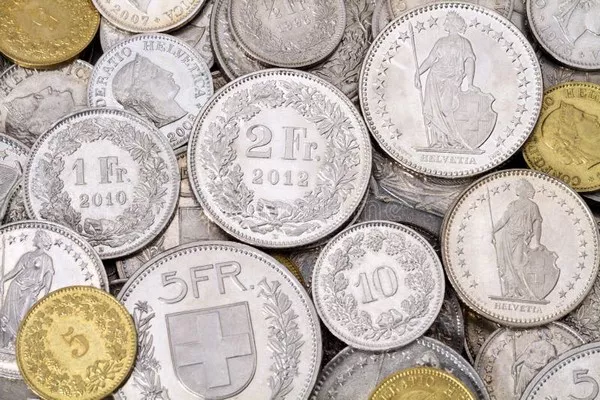Exchange rate policy plays a pivotal role in shaping the value and stability of a nation’s currency. The United States, with the U.S. dollar as its currency, is no exception to this rule. The impact of exchange rate policies on the dollar is complex and far-reaching, with repercussions for international trade, economic growth, and global financial markets. In this article, we will explore the mechanisms through which exchange rate policies influence the dollar and examine their implications for the U.S. economy and the broader world.
Exchange Rate Basics
Before delving into the relationship between exchange rate policies and the dollar, it’s essential to understand the basics of exchange rates. An exchange rate is the relative value of one currency compared to another. It determines how much one currency can be exchanged for another in the foreign exchange (Forex) market. Exchange rates are influenced by a variety of factors, including interest rates, inflation, economic performance, and market sentiment.
Exchange rate policies are the strategies and actions undertaken by governments and central banks to manage their currency’s value and stability. These policies can be broadly categorized into three types: fixed exchange rates, floating exchange rates, and managed exchange rates.
Fixed Exchange Rates
In a fixed exchange rate system, a country’s currency is pegged to another currency, typically the U.S. dollar or the euro. This means that the exchange rate is fixed and does not fluctuate freely in response to market forces. Central banks intervene in the Forex market to maintain the fixed rate by buying or selling their currency as needed.
When a country adopts a fixed exchange rate policy, it essentially outsources its monetary policy to the currency to which it is pegged. For example, if a country pegs its currency to the U.S. dollar, it effectively imports the Federal Reserve’s monetary policy decisions. Any changes in U.S. interest rates or inflation will directly impact the pegged currency’s value.
Floating Exchange Rates
In a floating exchange rate system, exchange rates are determined by market forces of supply and demand. Central banks may still intervene in the Forex market to stabilize their currency or prevent extreme fluctuations, but they allow the exchange rate to adjust more freely.
Countries with floating exchange rate systems have greater control over their domestic monetary policy. They can adjust interest rates and implement other measures to achieve their economic goals without being constrained by a fixed exchange rate. In such systems, exchange rate movements are influenced by economic fundamentals and market sentiment.
Managed Exchange Rates
A managed exchange rate system falls between fixed and floating systems. In this approach, central banks intervene in the Forex market to influence the exchange rate within a certain range. They aim to strike a balance between the stability of fixed rates and the flexibility of floating rates.
Impact of Exchange Rate Policy on the Dollar
Exchange rate policies have several direct and indirect impacts on the value and role of the U.S. dollar:
1. Trade Balance: Exchange rate policies can affect a country’s trade balance, which, in turn, influences the demand for the U.S. dollar. A weaker domestic currency (achieved through a floating or managed exchange rate) can make a country’s exports more competitive in international markets, potentially boosting exports. Conversely, a stronger currency (resulting from a fixed exchange rate) may make exports more expensive and hinder competitiveness.
2. Capital Flows: Exchange rate policies can influence capital flows into and out of a country. A high-interest-rate policy (associated with a strong currency) can attract foreign investment, leading to an appreciation of the domestic currency. A lower interest rate policy (associated with a weaker currency) may discourage foreign investment but promote capital repatriation.
3. Foreign Exchange Reserves: Countries with fixed exchange rate policies often maintain significant foreign exchange reserves, primarily denominated in U.S. dollars, to intervene in the Forex market and defend their currency’s peg. This accumulation of dollar reserves can affect the dollar’s demand and, to some extent, its value.
4. Global Currency Status: The dollar’s status as the world’s primary reserve currency is closely tied to exchange rate policies. Countries that maintain fixed or managed exchange rate systems often hold a significant portion of their foreign exchange reserves in dollars. The stability and reliability of the dollar as a reserve currency are key factors that influence other countries’ choices to hold dollars in their reserves.
5. Inflation and Interest Rates: Exchange rate policies can indirectly impact the U.S. dollar through their effects on inflation and interest rates. For instance, a country with a fixed exchange rate may experience imported inflation if the pegged currency strengthens, making imported goods cheaper. This can affect the competitiveness of U.S. goods in foreign markets and, consequently, U.S. export levels.
Conclusion
Exchange rate policies wield considerable influence over the value and role of the U.S. dollar. Whether a country adopts a fixed, floating, or managed exchange rate system can have profound effects on trade balances, capital flows, foreign exchange reserves, and the dollar’s status as a global reserve currency.
It is essential for policymakers, economists, and investors to closely monitor exchange rate policies and their potential impact on the dollar. Changes in exchange rate policies can lead to shifts in economic dynamics, affect international trade relationships, and have broader implications for the global financial system.
As the global economic landscape continues to evolve, the interplay between exchange rate policies and the U.S. dollar will remain a critical determinant of economic stability and prosperity, both in the United States and around the world.


